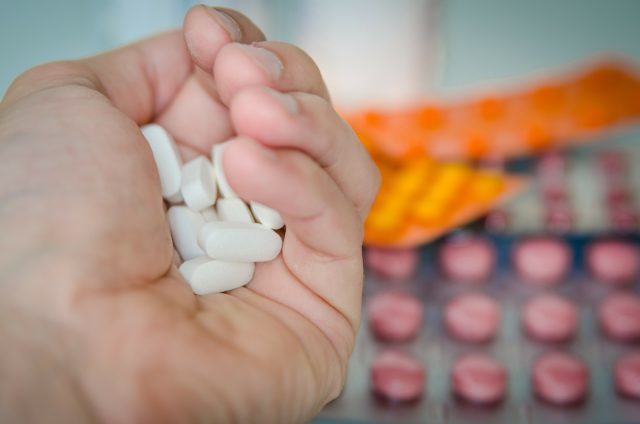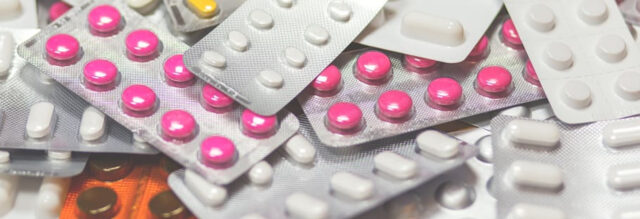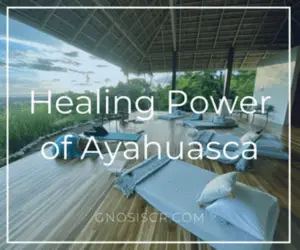Self-medication is a common practice in many parts of the world. People often take medications on their own, without a doctor’s supervision. Although this may seem like a quick and easy solution to alleviate symptoms, it can have serious health consequences.
Know about the risk of self-medication
One of the biggest risks of self-medication is that the person may not be receiving the proper treatment for their illness. The symptoms of one disease can be similar to those of another, and taking the wrong medication can make the situation worse. Also, some medicines can interact negatively with other medicines the person is taking or with certain foods.
Another risk of self-medication is the possible damage that medications can cause to the body, in addition to the addictions that they can cause. Usually, many people end up under drug addiction treatment. Some people may not be aware of the side effects of the medications they are taking, which can lead to serious health complications.
In addition, self-medication can mask the symptoms of a more serious illness. Instead of treating the underlying cause of the symptoms, the drugs simply relieve the symptoms. This can delay proper diagnosis and treatment, which can have serious health consequences.
Consequences of self-medication
Self-medication can have many negative health consequences. Some of the more common risks include:
Liver or kidney damage- Some medications can be toxic to the liver or kidneys if taken in the wrong dose or over a long period of time.
Allergic reactions- People can be allergic to certain medications, which can cause a severe allergic reaction.
Drug interactions- Some medications can negatively interact with other medications the person is taking, which can increase the risk of serious health complications.
Antibiotic resistance- Taking antibiotics without the need or supervision of a doctor can increase the risk of developing antibiotic resistance.
Masking of symptoms- Medications can relieve symptoms without treating the underlying cause of the disease, which can delay proper diagnosis and treatment.
Importance of going to a doctor and not self-medicating
Health is one of the most precious assets we have, so it is essential to take care of it and care for it properly. Many times, when we feel bad, we tend to resort to self-medication as a quick and easy solution. However, this can have serious consequences for our health, so it is important to see a doctor instead of self-medicating.
Self-medication is a common, but dangerous practice. It can lead to taking the wrong medicines, inadequate doses or the negative interaction of different medicines, which can have serious health consequences. Also, self-medication does not always solve the underlying problem, and in some cases it can mask the symptoms of a more serious condition.
For these reasons, it is advisable to seek proper medical attention rather than self-medicate. A doctor is a trained professional who will know the underlying cause of the symptoms and will be able to provide the appropriate treatment to treat the condition effectively. Additionally, a doctor can perform examinations and tests to determine the cause of the symptoms, which can lead to early diagnosis and proper treatment.

Another benefit of seeing a doctor is disease prevention
A doctor can perform screenings and diagnostic tests to detect disease in its early stages, which can significantly improve your chances of recovery. In addition, a doctor can provide healthy lifestyle tips and recommendations that can help prevent disease in the future.
It is important to remember that medications are powerful and can have serious side effects. Medications should be taken as directed by a doctor and in the proper dosage. Taking medications incorrectly can be dangerous and lead to serious health consequences.
The increase in self-medication in young people
In recent years, there has been a worrying increase in self-medication, especially among young people. In general sense, young people are more likely to be addicted to drugs and this is usually a serious problem. It is very common to see young people in private detoxification centers for addictions as common as the excessive use of pills and other medications.
Causes of self-medication in young people
There are several reasons why young people self-medicate. One of the main causes is the lack of access to proper medical care. In many countries, access to healthcare is limited, especially in rural areas. Additionally, young people may have difficulty getting a doctor’s appointment due to a lack of time or financial resources.
Many young people are not well informed about the risks and benefits of medications and may not understand the side effects. Also, some young people may believe that medications are the quick and easy solution to their health problems.
Social media can also play a role in self-medication in young people. With the ease of access to information online, many young people may seek quick solutions to their health problems online instead of seeking proper medical care.
Consequences of self-medication in young people
This can have serious consequences for the health of young people. One of the biggest risks is the possibility of an overdose. Drug overdose can be fatal and can occur even with over-the-counter medications. Additionally, young people may not understand the side effects of the medications they are taking and may experience adverse reactions.
Self-medication can also have a negative impact on the mental health of young people. Young people can self-medicate to treat mental health problems, such as anxiety or depression. However, medications can mask the underlying symptoms and do not treat the underlying cause of the mental health problem.
How to prevent self-medication in young people
There are several measures that can be taken to prevent self-medication in young people. Health education is essential. Young people should be informed about the risks and benefits of medications and should be aware of side effects.
Health care must be accessible and affordable for all young people. Governments must invest in health care and health education to ensure young people have access to the health care they need.
Drug addiction is an increasingly common public health problem today. Although medications can be a valuable tool for treating a variety of conditions, when used incorrectly or abusively, they can have serious health consequences.

Causes of drug addiction
One of the main causes of drug addiction is the over-prescription of drugs. In many cases, doctors can prescribe opioid or tranquilizing medications to treat pain or anxiety, but these medications can be highly addictive. Patients can develop a dependency on the drugs and can continue taking the drugs even after the original condition has resolved.
Another common cause of drug addiction is the recreational use of drugs. Many people may use medication to feel better or to experience an altered state of consciousness. Recreational use of drugs can lead to physical and psychological dependence and can have serious health consequences.
Lack of education about the effects of medications can also contribute to drug addiction. Many people may not understand the risks associated with the use of medications and may not be informed about side effects and drug interactions. This can lead to inappropriate medication intake or a dangerous combination of medications.
Consequences of drug addiction
Drug addiction can have serious consequences for physical and mental health. Drug abuse can lead to an overdose, which can be fatal. In addition, drug abuse can have serious side effects, including respiratory depression, liver and kidney problems, and sleep disturbances.
Drug addiction can also have a negative impact on mental health. Patients can develop anxiety disorders and depression as a result of drug abuse. In addition, drug addiction can have a negative impact on interpersonal relationships and job performance.
How to prevent drug addiction
The prevention of drug addiction is essential today. Physicians and other healthcare professionals must be aware of the risks associated with the use of medications and must prescribe medications responsibly. In addition, the importance of education on the risks and benefits of medications should be emphasized and the responsible use of medications should be promoted.
Research and development of non-addictive alternatives to drugs is also important in the prevention of drug addiction. Non-drug treatments, such as cognitive behavioral therapy and group therapy, can be effective in treating a variety of conditions.

